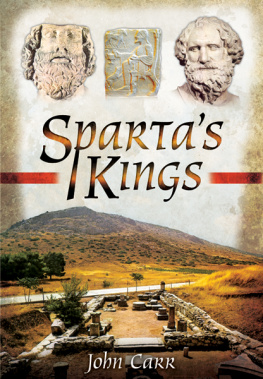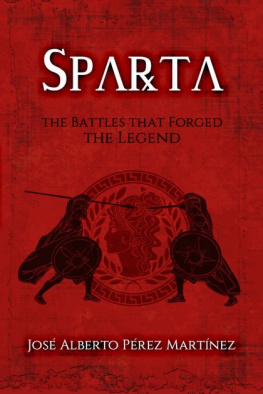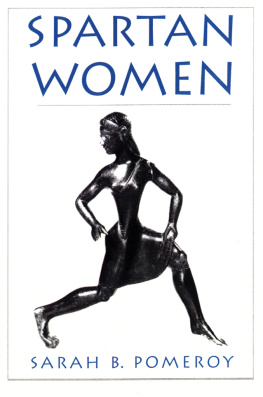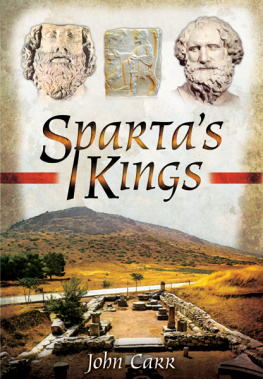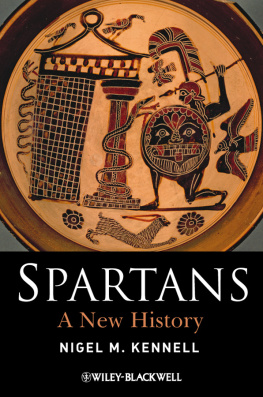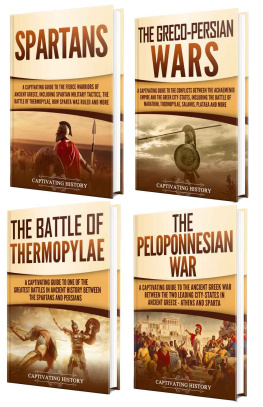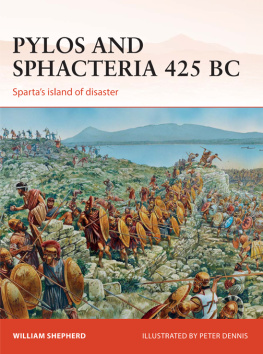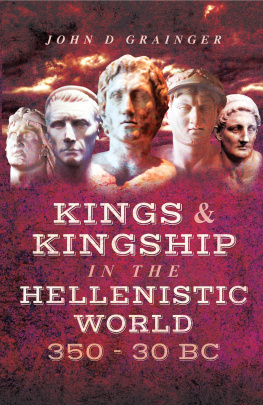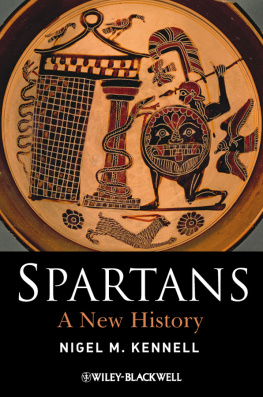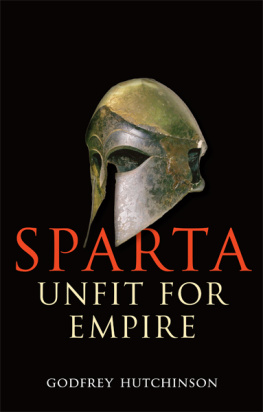
Contents
Chapter 6: The Cold War Kings
First published in Great Britain in 2012 by
PEN & SWORD MILITARY
An imprint of
Pen & Sword Books Ltd
47 Church Street
Barnsley
South Yorkshire
S70 2AS
Copyright John C. Carr 2012
ISBN 978-1-84884-849-8
PDF ISBN: 9781783376322
EPUB ISBN: 9781783376346
PRC ISBN: 9781783376339
The right of John C. Carr to be identified as the Author of this Work has been
asserted by him in accordance with the Copyright, Designs and Patents Act 1988.
A CIP catalogue record for this book is
available from the British Library.
All rights reserved. No part of this book may be reproduced or transmitted in any
form or by any means, electronic or mechanical including photocopying, recording
or by any information storage and retrieval system, without permission from the
Publisher in writing.
Typeset by Concept, Huddersfield, West Yorkshire.
Printed and bound in England by
CPI Group (UK) Ltd, Croydon, CRO 4YY.
Pen & Sword Books Ltd incorporates the Imprints of Pen & Sword Aviation, Pen &
Sword Family History, Pen & Sword Maritime, Pen & Sword Military, Pen & Sword
Discovery, Wharncliffe Local History, Wharncliffe True Crime, Wharncliffe
Transport, Pen & Sword Select, Pen & Sword Military Classics, Leo Cooper, The
Praetorian Press, Remember When, Seaforth Publishing and Frontline Publishing.
For a complete list of Pen & Sword titles please contact
PEN & SWORD BOOKS LIMITED
47 Church Street, Barnsley, South Yorkshire, S70 2AS, England
E-mail:
Website: www.pen-and-sword.co.uk
Call to arms
By midmorning most of the Spartan expeditionary force was already dead. Since dawn the invading Persians had been hurling masses of men against the Spartan defence at the pass of Thermopylai, whittling down the defenders to a mere handful of bloody and exhausted warriors.
King Leonidas I, right there in the front line, was still on his feet, but only just. Cascades of Persian arrows darkened the sky. Leonidas, his face contorted with the supreme effort, fought bravely on until a spear thudded into him and he crumpled slowly onto the corpses of his comrades.
And I was there to see it all happen.
The month was November of 1960 and I, a young schoolboy fresh from the grey skies of Yorkshire, stood transfixed as Twentieth Century Fox recreated the 480 BC Battle of Thermopylai on the shores of a lagoon near the Greek spa town of Loutraki. As my mother worked on the movie set I was given a rare chance to see history in the re-making.
Cut! yelled the director, and the last of the rubber-tipped arrows, fired from cannon-like cylinders out of camera range, flopped to the ground. Hollywood actor Richard Egan, playing Leonidas, eased himself up from the gravel. Is that a wrap? he said in his California baritone, wiping the fake blood and real sweat from his bronzed arms and face.
It sure is, replied Spyros Skouras, the Greek-born boss of Twentieth Century Fox, who had flown in to see the climactic shooting of The 300 Spartans. Skouras had just been driven up in a massive black limousine that had drawn crowds of curious villagers on the dusty ten-kilometre route from Loutraki.
I had sat in the back of the limo with the Great Man, who took great pleasure in expounding to this young English lad the glories of Greek arms in the Persian Wars. I dont remember what I said in reply, but at one point Skouras turned to me and said: Youre a smart boy, John. Why dont you come to Hollywood?
For better or worse, I didnt become an actor. But now, half a century on, I feel Ive done the next best thing by pursuing a career as a journalist and writer, helping bring to life in my own way some of those momentous events and people in Greek military history.
List of Illustrations
Maps
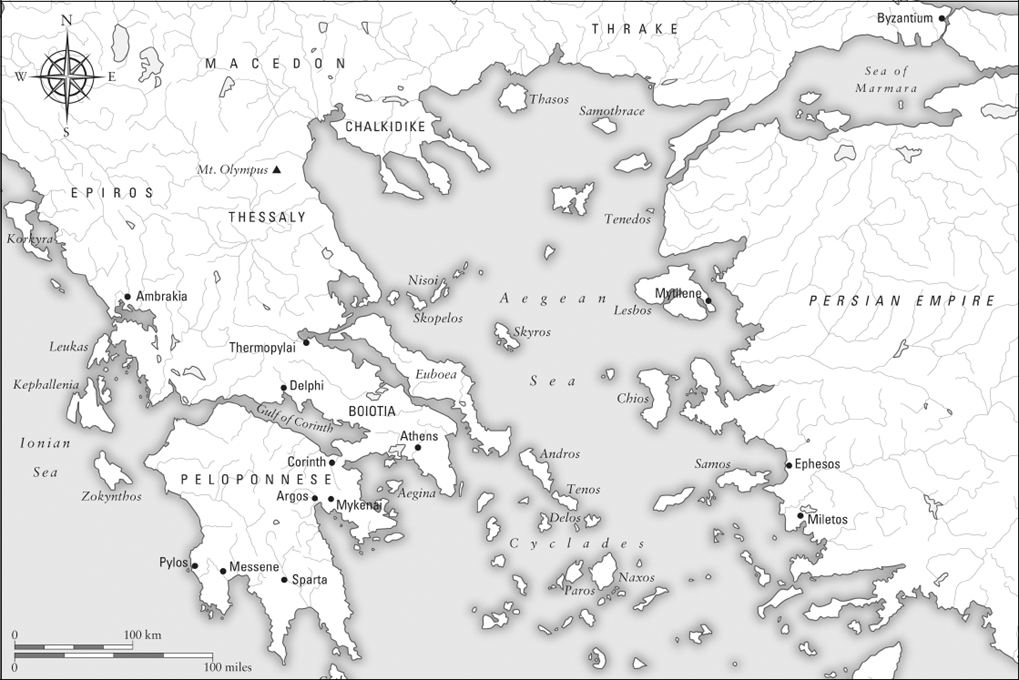
The Greek World
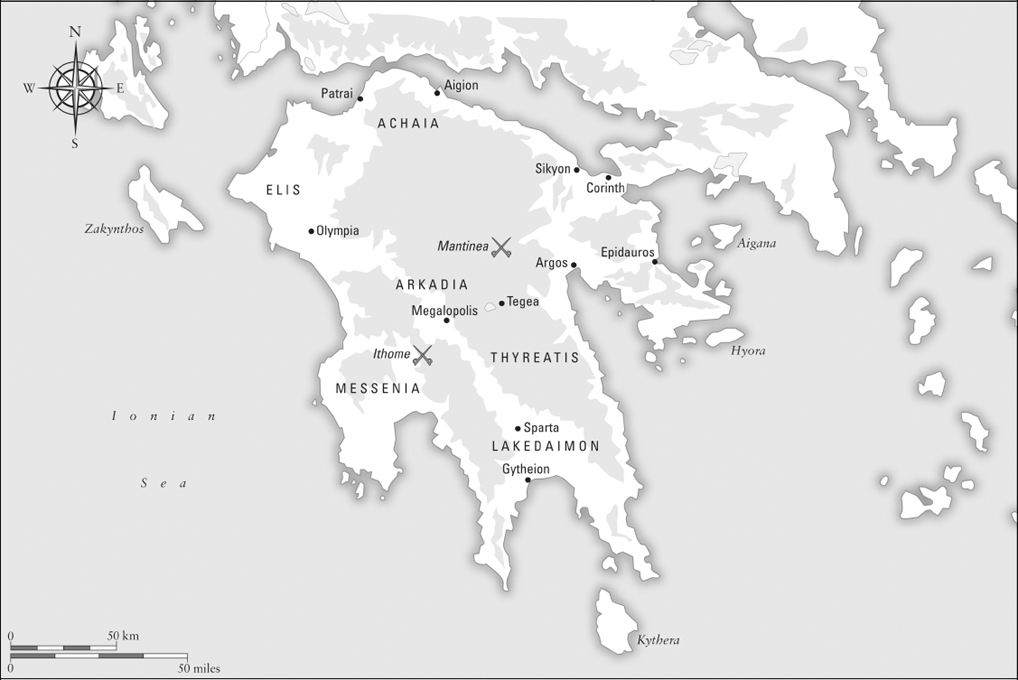
The Peloponnese
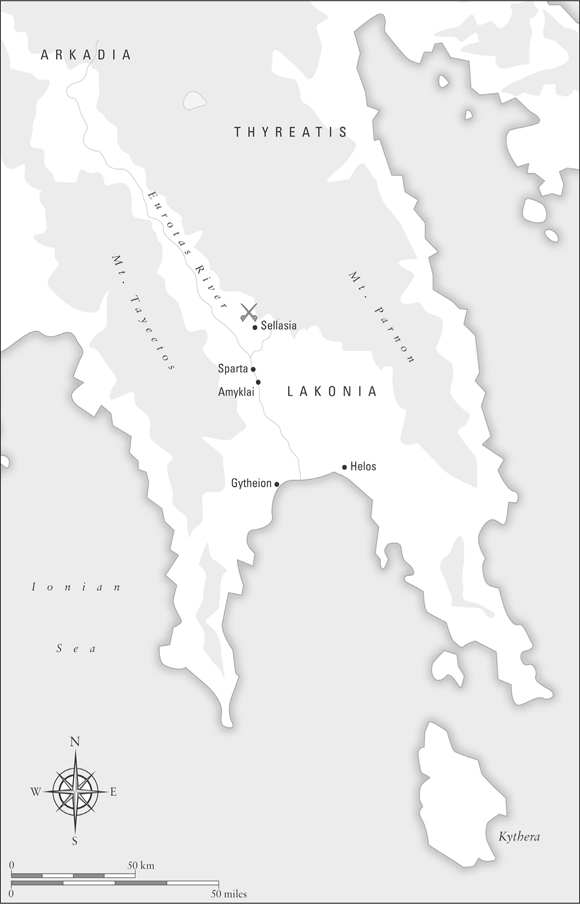
Lakonia
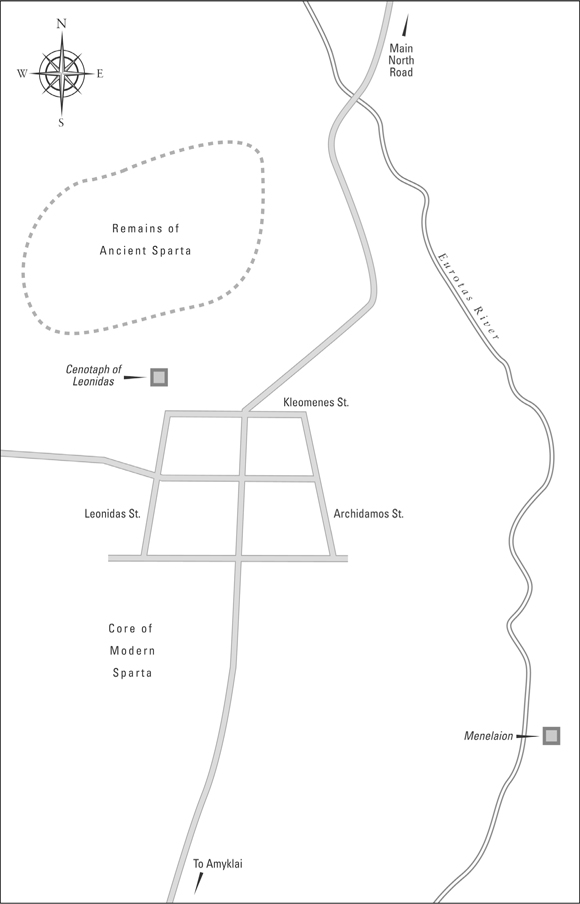
Sparta City Plan
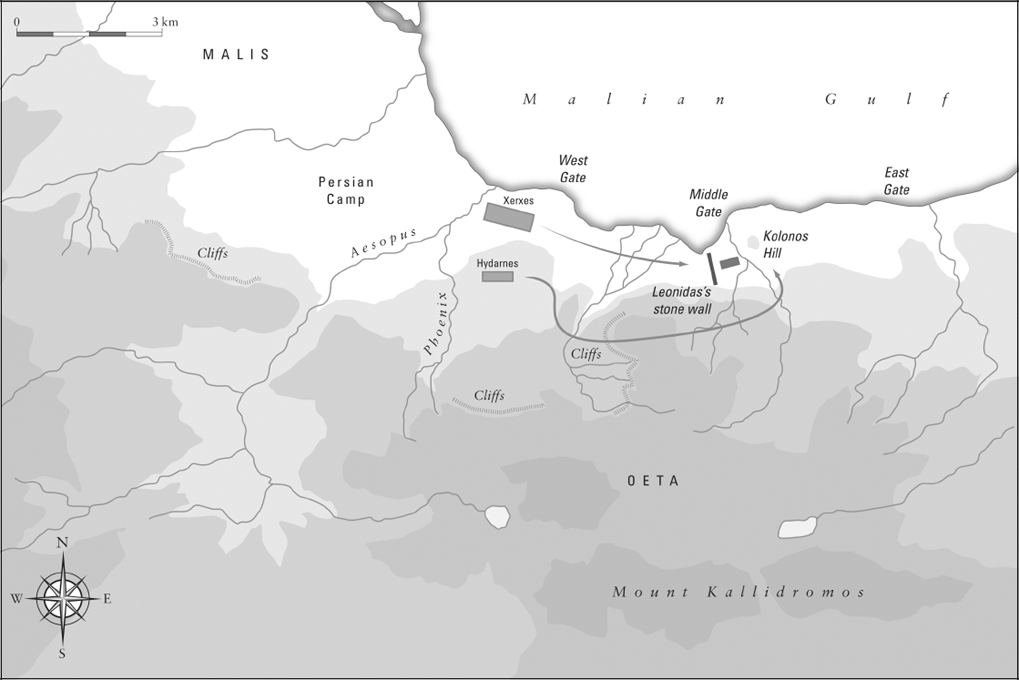
Battle of Thermopylai 480 BC
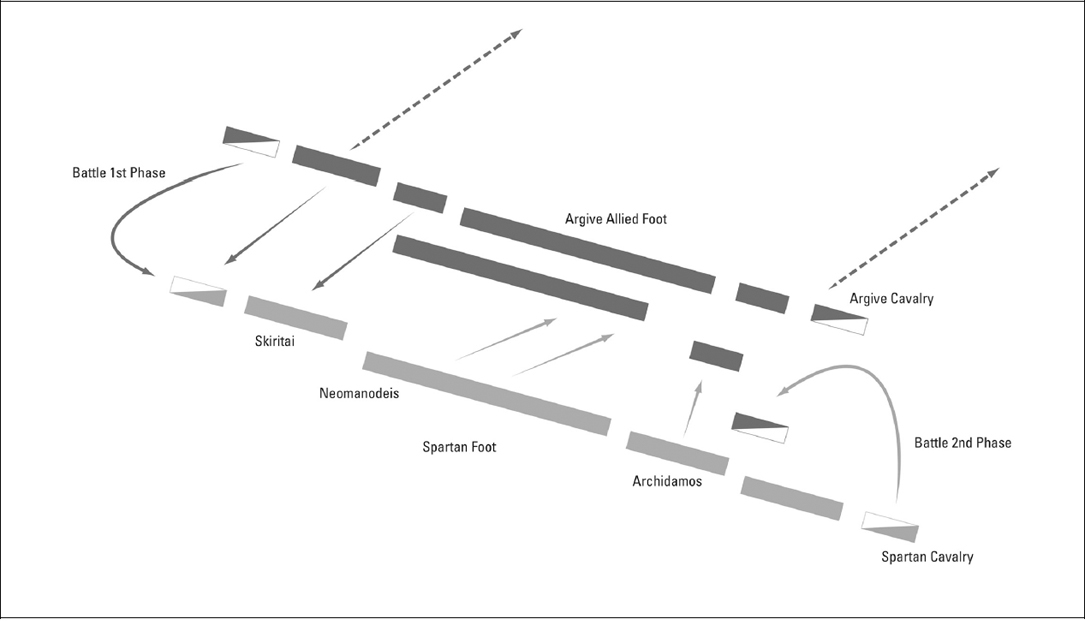
Battle of Mantineia
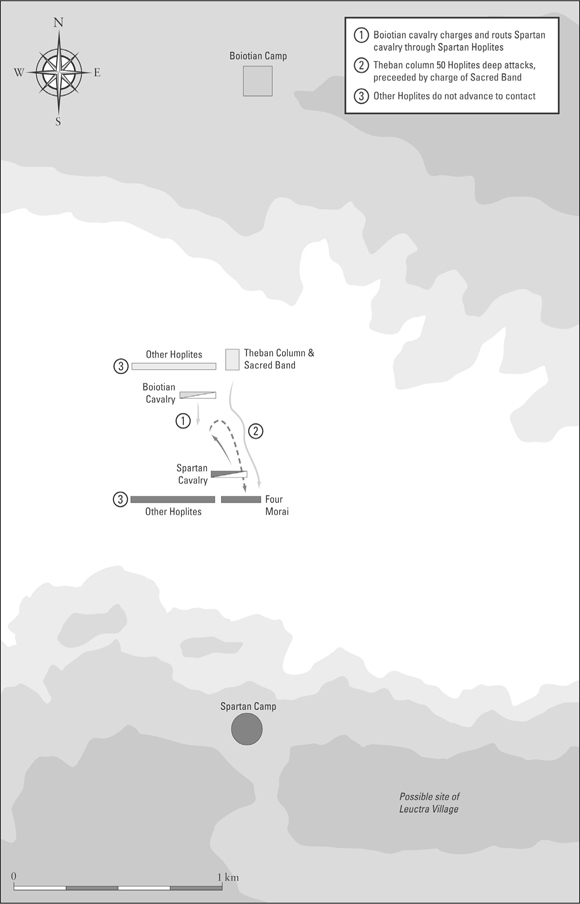
Battle of Leuktra
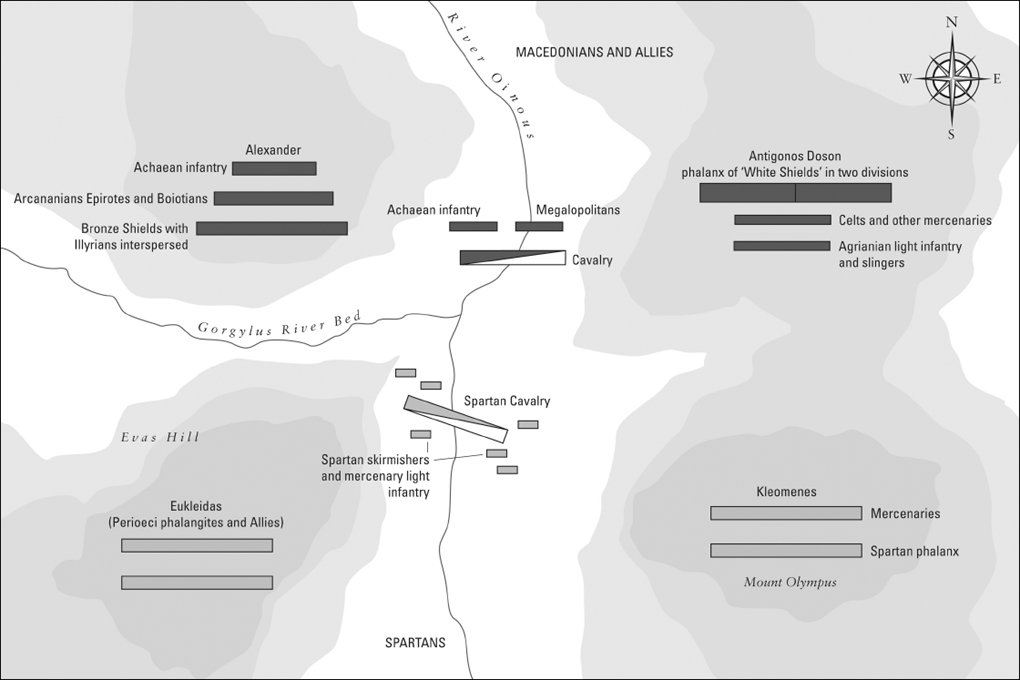
Battle of Sellasia
Prologue
There is no poetic composition to commemorate the doings of the royal houses of the Lakedaimonians.
Pausanias
The idea for this book emerged during a meeting with Philip Sidnell, a commissioning editor for Pen & Sword Books, in the refined surroundings of the British Museum restaurant in July 2011. I had just completed work on On Spartan Wings and was casting about for some other Greek theme. The kings of Sparta popped into my head somewhere between the shrimp salad and the Dover sole. Days later we had the green light and I was back in Greece dusting off my sources and pecking out the first few lines. Over the following months the book was written amid a serious Greek economic crisis that bid fair to turn all Greeks into Spartans, with a small s.
The kings of ancient Sparta ruled in an unbroken chain for about 900 years. I say about because its by no means easy to put a precise start and finish line to the history of the Spartan kingship. The earliest conventional starting point for the historical era is usually placed at 1103 BC with the creation of the twin kingship by Eurysthenes and Prokles, the sons of Aristodemos. The latest date for the extinction of the kingship is probably 183 BC, when the last of Eurysthenes descendants perished. A total of sixty-two kings reigned, thirty-one in each of the two royal houses.
Yet there were kings at Sparta well before the historical era, before the Greeks as an ethnic group entered the southern Balkan peninsula. Ignoring for a moment the legend that the Spartan kings were the descendants of the mythical semi-divine hero Herakles, ancient authors noted eight pre-historical kings before Tyndareos, the father of Helen of Troy, who brings Sparta more or less into the known ancient world. These ancient traditions, of course, cannot be considered historical. Yet they are reliable signs that pre-Greek and early Greek Sparta, back to 2,500 BC or even before, was governed by royal rulers who may be little more than names to us, but had their own dynastic continuity spanning the epochs.
The most fascinating aspect of the historical-era kingship of Sparta is that it was dual. Two kings, one each from the Agiad and Eurypontid royal houses, reigned concurrently. Rarely did the two houses intervene in each others affairs; each respected the others autonomy and authority. Neither were Spartas kings splendid monarchs as one might expect in the ancient world. With few ignoble exceptions they conspicuously shunned the grandeur and pomp of their equivalents in the Middle East or nearer regions such as Macedon.
Next page
